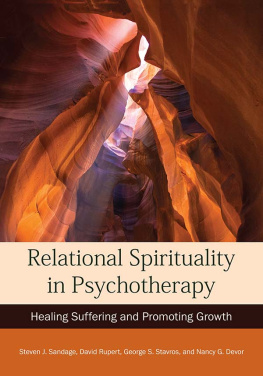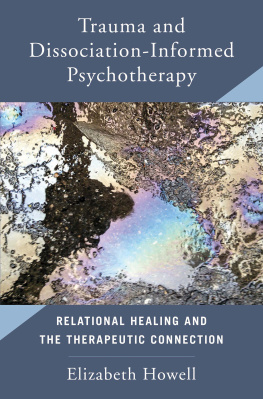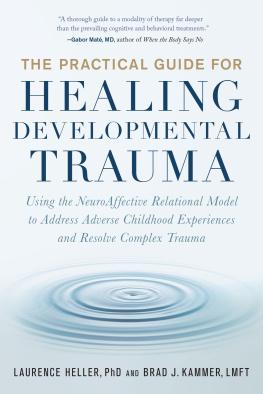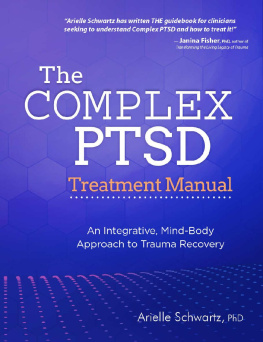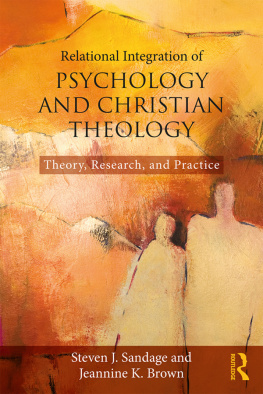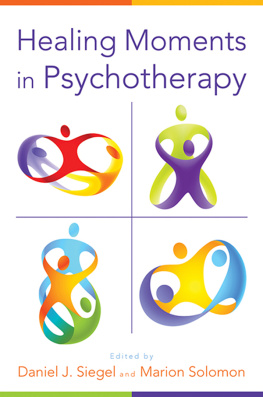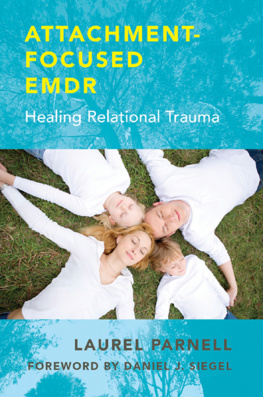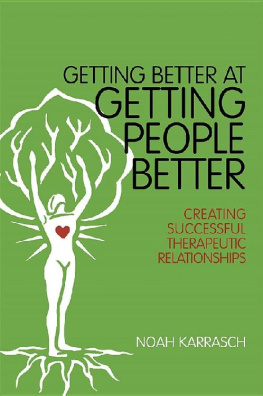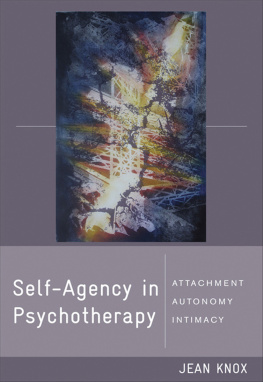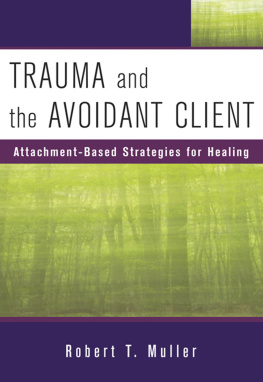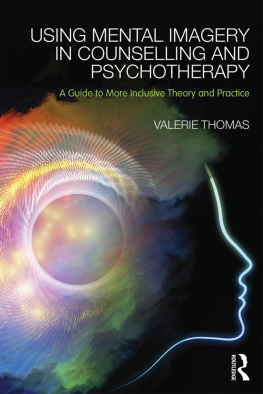CONTENTS
Copyright 2020 by the American Psychological Association. All rights reserved. Except as permitted under the United States Copyright Act of 1976, no part of this publication may be reproduced or distributed in any form or by any means, including, but not limited to, the process of scanning and digitization, or stored in a database or retrieval system, without the prior written permission of the publisher.
Electronic edition published 2020.
ISBN: 978-1-4338-3178-2 (electronic edition).
The opinions and statements published are the responsibility of the authors, and such opinions and statements do not necessarily represent the policies of the American Psychological Association.
Published by
American Psychological Association
750 First Street, NE
Washington, DC 20002
https://www.apa.org
Order Department
https://www.apa.org/pubs/books
In the U.K., Europe, Africa, and the Middle East, copies may be ordered from Eurospan
https://www.eurospanbookstore.com/apa
Cover Designer: Nicci Falcone, Potomac, MD
Library of Congress Cataloging-in-Publication Data
Names: Sandage, Steven J., author. | Rupert, David (David Alan), author. | Stavros, George, author. | Devor, Nancy G., author.
Title: Relational spirituality in psychotherapy : healing suffering and promoting growth / by Steven J. Sandage, David Rupert, George S. Stavros, Nancy G. Devor.
Description: Washington, DC : American Psychological Association, [2020] | Includes bibliographical references.
Identifiers: LCCN 2019034528 (print) | LCCN 2019034529 (ebook) | ISBN 9781433831669 (paperback) | ISBN 9781433831782 (ebook)
Subjects: LCSH: PsychotherapyReligious aspects. | Interpersonal relationsReligious aspects. | SpiritualityPsychology.
Classification: LCC RC489.S676 S26 2020 (print) | LCC RC489.S676 (ebook) | DDC 616.89/14dc23
LC record available at https://lccn.loc.gov/2019034528
LC ebook record available at https://lccn.loc.gov/201903
http://dx.doi.org/10.1037/0000174-000
10 9 8 7 6 5 4 3 2 1
To Jim Maddock and Noel Larson, my key clinical mentors, who transformed my understanding of relational psychotherapy through their teaching, all the while embodying such vital existential and spiritual traitscompassion, wisdom, courage, humility, and humor; and to Danielle Sandage, my life partner in spiritual dwelling and seeking.
STEVEN J. SANDAGE
To Holden, who lived so bravely, with heart and soul.
DAVID RUPERT
To my beloved mentors, Fr. Costas Sitaras, Dr. Kyriaki Fitzgerald, and Dr. Joseph Shay, each of whom embodies the healing power of hospitality; and to Despina Stavros, my dearest friend and fellow pilgrim in a journey of love.
GEORGE S. STAVROS
In memory of Ward Cromer, PhD, my clinical mentor, whose unflinching honesty and challenge was matched only by his commitment, compassion, and presence; and to Dick Devor, whose love and humor heal me daily.
NANCY G. DEVOR
PREFACE AND ACKNOWLEDGMENTS
While working on this volume on relational spirituality in psychotherapy, we were surprised and delighted to discover a convergence of approaches between the Albert and Jessie Danielsen Institute at Boston University (the current professional home of all the authors) and Bethel Seminary, where Steve began the research leading to the relational spiritual model (RSM). Leland Eliason was the dean at Bethel Seminary (St. Paul, Minnesota) when he encouraged Steve and Carla Dahl to start a program of research on the spiritual and personal formation of seminary students drawing on social science and theology. Eliason had received his doctorate in pastoral psychology from Boston University, where he studied with Merle Jordan, the former executive director of the Danielsen Institute, whose teaching career spanned four decades and included Nancy and George among his students. Merle was masterful at conveying his passion for interdisciplinary clinical integration that combined scholarly depth and tremendous heart. These converging streams of influence of relational and systemic perspectives on spirituality and psychotherapy have brought us to the place from where we write today.
Steves initial conceptual and empirical work on the RSM while in Minnesota benefited greatly from learning in dialogue with many colleagues, students, and therapy clients. In addition to Carla, key scholarly collaborators have included Peter Jankowski, LeRon Shults, Mary Jensen, Everett Worthington, Sarah Crabtree, Maria Schweer-Collins, Ian Williamson, and Dan Jass. Through their teaching and consultation, Jim Maddock and Noel Larson also shaped many of the clinical perspectives behind the RSM. The early research work on the RSM was supported by grants from the Lilly Endowment, the John Templeton Foundation (JTF), and the Fetzer Institute. This current version of the RSM has also been influenced by two research grants from JTF: Mental Healthcare, Virtue, and Human Flourishing (No. 61245) and Developing Humility in Leadership (No. 60622). We also appreciate the contributions from many team members working with us on various relational spirituality projects in the research center at the Danielsen Institute in recent years, including David Paine, Chance Bell, Elizabeth Ruffing, Sarah Moon, Hee An Choi, Claire Wolfteich, and James Tomlinson. Dean Mary Elizabeth Moore has enthusiastically supported the interdisciplinary research on the RSM.
The vision of the founders, Jesse and Albert Danielsen, is also a guiding inspiration behind this bookto bring the resources of spirituality, religion, and psychology to alleviate suffering and promote healing and growth through psychotherapy, training, and research. Their vision for the Danielsen Institute was born out of the personal pain of Albert, an orphan who had suffered loss and cruelty and whose resiliency originated in loving relationships. It is a constant reminder to us of how relational spirituality and psychotherapy can help us move through experiences of suffering and trauma to lives of hope, meaning, and generativity.
The fabric of the Institutes daily, relational rhythms of clinical service, teaching, training, supervision, and research is woven deeply into this volume. We are immeasurably grateful for the opportunity to work with one another and with our Danielsen Institute colleaguesBrooke Amendola, Miriam Bronstein, Nicolae Dumitrascu, Lauren Kehoe, Michele Klau, Christopher ORourke, Loveleen Saini, Marina Williams, and Mary Wilson. We are indebted to the many courageous clients and thoughtful training fellows who have accompanied and taught us, both before and during the writing of this book. Your presence and wisdom have been invaluable in our lives and work. Alongside each of you, we experience a warm and vibrant professional ecosystem that provides the necessary support and challenge to articulate our most deeply held beliefs about and approaches to psychotherapy.
Introduction
Relational Model of Spiritually Integrative Psychotherapy

